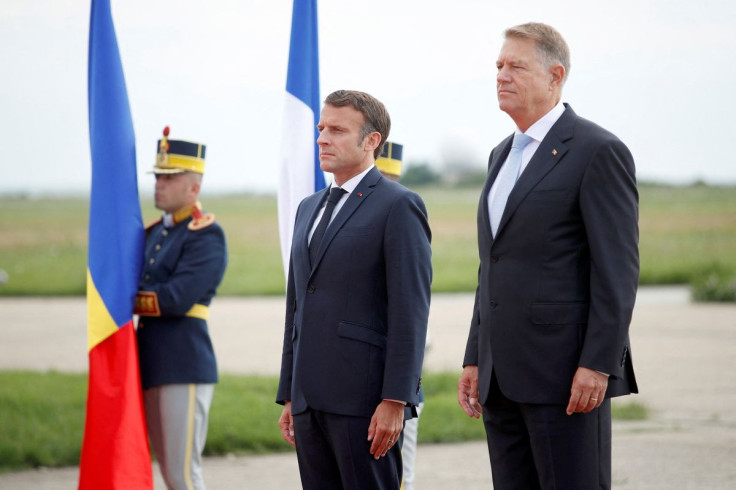Macron Fights To Salvage A Functioning Government, And His Reform Agenda

French President Emmanuel Macron faced the prospect on Monday of having to seek support from parliamentary rivals in order to salvage his economic reform agenda, after voters punished his centrist alliance in a legislative election.
While Macron's "Ensemble" grouping secured the largest number of lawmakers in the 577-seat National Assembly, it fell short of an absolute majority in a vote on Sunday that saw a leftwing alliance and the far-right perform strongly.
Final figures showed Macron's centrist camp got 245 seats - well below the 289 needed to control parliament.
The vote was a painful setback for Macron, 44, who was re-elected in April. In his second and final term, he wants to deepen European Union integration, raise the retirement age and inject new life into France's nuclear industry.
There is no script in France for how things will unfold.
Macron's options include forming a ruling coalition or presiding over a minority government that has to enter into negotiations with opponents on a bill-by-bill basis. If no agreement can be found, the euro zone's second biggest economy is likely to face political paralysis.
"Things are going to be complicated. We will try to bring others on board with us, especially to convince the few moderates in parliament to follow us," government spokeswoman Olivia Gregoire told France Inter radio.
She said Prime Minister Elisabeth Borne could stay on and lead talks with potential partners as she prepares a cabinet reshuffle to replace ministers who will have to resign after failing to secure seats in parliament.
However, lawmakers from the most likely potential partners, the conservative Republicans party, indicated they were not willing to jump on board.
"Forget about this idea that there is some sort of imperative to choose between Emmanuel Macron and the extremists," Republicans secretary general Aurelien Pradie told franceinfo radio.
"The Republicans' position in parliament will be free and independent."
UNDER PRESSURE
Financial markets took the result largely in their stride, with little impact on the euro and stocks in early trading on Monday. French bond spreads saw some widening pressure.
"The hope that some foreign exchange traders placed in Macron in 2017 evaporated some time back, so that election victories or defeats do not play a major role for the euro exchange rates any longer," Commerzbank analyst Ulrich Leuchtmann said in a note.
In April, Macron became the first French president in two decades to win a second term, as voters rallied to keep the far-right out of power.
But, seen as out of touch by many voters, he presides over a deeply disenchanted and divided country where support for populist parties on the right and left has surged.
Marine Le Pen's far-right National Rally party won its largest ever representation in the lower house while a resurgent left-wing bloc, Nupes, headed by the hard-left Jean-Luc Melenchon will form the largest opposition force.
Nonetheless his own unlikely alliance may now find holding together harder than winning votes.
After a first presidential mandate marked by a top-down government style that Macron himself compared to that of Jupiter https://www.reuters.com/world/europe/jupiter-no-more-macron-learns-art-compromising-hard-way-2022-06-19, the almighty Roman god, the president will now have to learn the art of consensus-building.
"This culture of compromise is one we will have to adopt but we must do so around clear values, ideas and political projects for France," Finance Minister Bruno Le Maire said.
© Copyright Thomson Reuters 2024. All rights reserved.





















